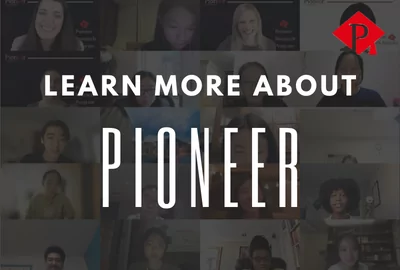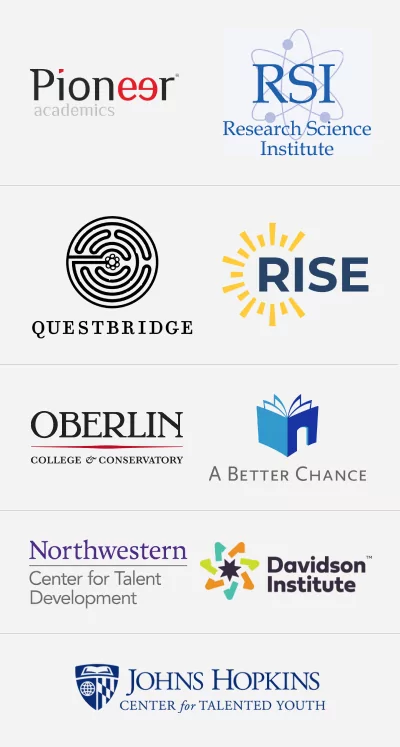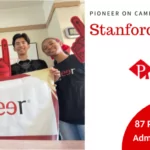Harshika (environmental science, 2019) knew she wanted to research the fate of coral reefs after a family vacation to Australia; however, as a high school student in India, this seemed out of her grasp. “I had always thought that the only way I could do research about coral reefs is if I go to a marine lab or go deep sea diving,” she explains. The Pioneer Research Program allowed Harshika to conduct rigorous, original research on her chosen topic remotely. “Being able to be at home and do the entire research process online was the coolest part,” she says. Pioneer Academics couples rigorous academic standards with the scaffolding necessary for high school students to conduct research from anywhere in the world.
Pioneer scholars come to the program with a number of misconceptions about research. Janae-Rose (anthropology, 2019), a Pioneer scholar from the United States, describes the most common idea students have about research: “Before Pioneer, when I pictured research I had the same stereotypical image everyone has: a scientist in a white coat mixes chemicals, and then something happens and there is a huge discovery that changes the world.” At Pioneer Academics, high school students undergo a mindset shift when they realize that with the right support, research can be done from any location, even by high school students. “Of course I knew logically that research could look more like everyday life, but for me it always seemed like it had to be traveling to a foreign country rather than observing your own city or community in a new way,” Janae-Rose continues. “With Pioneer, I looked at patterns that I saw where I live.”
Pioneer scholars learn that research is not just the domain of graduate students and seasoned academics; with the support of Pioneer’s academic system, motivated high school students can conduct high-quality research. Pioneer’s rigorous academic system features standards and oversight developed and conducted jointly with Oberlin College. One of these standards is that each student must write an original research paper–not simply a literature review or report–that contributes new ideas to their field. Pioneer scholars must design their own research question; it is not assigned or suggested by their faculty mentor. Pioneer combines these rigorous standards with personalized support, making research accessible to high school students. Seungmin (business, 2019), a Pioneer scholar from South Korea, reflects, “My understanding of research changed radically. I thought of research as something I couldn’t reach. I thought you could only do research when you’re academically advanced… After doing research myself at Pioneer, which made my work legitimate and credible, I realized that I could do it.” Kaushal (neuroscience/psychology, 2020), a Pioneer scholar from the United States, echoes this sentiment. “Initially, I thought research was a super complicated thing that only professors and teams of scientists with years and years of experience could do. The first things that came to my mind were fancy biology labs and cancer research. [I learned] that research is broad; it can involve so many different things… Pioneer really helped me realize that anything can be researched as long as you’re answering a question,” he explains.
Rather than a few big “eureka” moments by geniuses, research is often a collaborative effort by thousands of people, each advancing knowledge one small step at a time. “One of the main takeaways [from my experience at Pioneer] is that research happens in small steps, not in leaps,” says Michael (economics, 2020), a Pioneer scholar from China. “Whenever we do research, we’re making one tiny step into the unknown. We’re not taking a giant leap—discovering relativity or something like that—but we’re expanding on current knowledge a little bit more.” When Pioneer scholars realize that their research does not need to be grand in its scope or impact to contribute original knowledge to their field, they are empowered to participate in the global academic community.
With the support of Pioneer’s unique academic system, Pioneer scholars unlearn misconceptions about the research process. At Pioneer, research is accessible to high school students working remotely all over the world, with or without previous research experience. This is possible because of the built-in support and rigorous standards of Pioneer’s academic system.



 Doing research is commonplace.
Doing research is commonplace.


